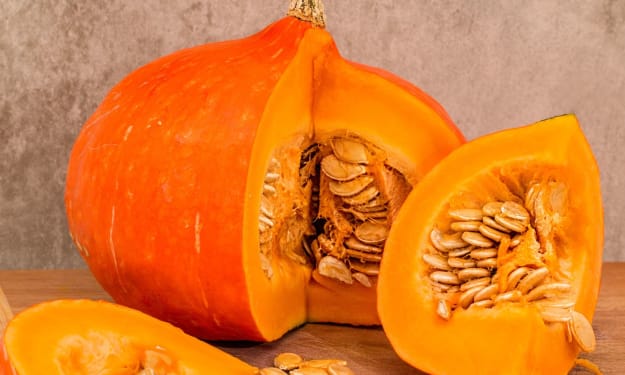Happiness Is Not In Chemistry: How Hormones Affect A Person’s Mood
Everyone has heard of the “hormones of happiness”, and everyone knows their names: oxytocin, serotonin, and so on. But is it possible to become happy simply by taking a dose of the hormone? Science answers: no.

The word "hormone" itself comes from the Greek root, meaning "to induce", not without reason is the notion that these substances act in the same way on the body as the gas pedal - on the car engine. Meanwhile, hormones can affect the functions of the body, or they can simply reflect them. If, in a good mood, the concentration of a substance in the blood increases, this does not mean that it creates positive emotions. And even if it really stimulates a certain function, this effect is usually more complicated than the simple dependence “more hormone - stronger psychological reaction”.
Oxytocin. Too mixed
This direct connection is called induction and is extremely rare. In humans, there are only two forms of behavior that are triggered directly by hormones. First, insulin lowers the concentration of glucose in the blood, stimulating hunger and the search for food. Secondly, aldosterone and other mineral adrenal corticoids cause a feeling of thirst. In addition, two affective states are created by hormones: anxiety with corticoliberin, euphoria with endogenous opiates (enkephalins and endorphins). This induction is limited.
Endogenous opiates
Neurotransmitters actively produced during stress. Among them are endorphins, which are produced in the pituitary gland and secreted into the blood, and enkephalins, which are synthesized in the hypothalamus. Like plant opiates, endogenous ones can cause euphoria, but they also fulfill many other functions, affecting almost all body systems.
More often there is another variant of the influence of hormones - modulation. In this case, mental processes are amplified or inhibited in proportion to the concentration of the hormone, but the effect is manifested only in a certain initial state. If other regulatory mechanisms exist for the same function, then the hormone can “tune” the state, but not create it. For example, prolactin enhances maternal instinct, but only in women who have recently given birth. And the well-known oxytocin increases friendliness, but only after a general decrease in hostility during psychotherapy.
Oxytocin really strengthens social bonds within the group, while at the same time contributing to the weakening of memory. And the basic physiological role of this hormone is the stimulation of labor and increased secretion of milk. Oxytocin is secreted during stimulation of the vagina and nipples, and the serenity of nursing mothers is due to its extremely high production. When grooming (combing and stroking the hair), the secretion of oxytocin is enhanced in both sexes, showing a strong modulating effect.
Progesterone
“Pregnancy hormone” plays an important role in the regulation of the female reproductive cycle and in fertilization. It also has a sedative and anti-anxiety effect and is produced in especially large quantities during gestation. At the end of the menstrual cycle, the synthesis of progesterone, on the contrary, decreases, which can play a role in the deterioration of mood.
Finally, a certain level of the hormone may be necessary for the function to be realized in principle; further growth in the concentration of the substance no longer leads to an increase in its manifestations. For example, with a deficiency of glucocorticoids, the mood drops “below the plinth”, but as soon as their content in the blood reaches a minimum level, it normalizes. A further increase in the number of hormones does not cause any changes until it exceeds the norm by ten times (this happens with prolonged treatment with glucocorticoid drugs), which will lead to the development of a manic state.
Dopamine. Too versatile
Everything is complicated by the fact that neurotransmitters, substances of a completely different nature, are ranked among the "hormones of happiness". The former is produced by specialized cells and are carried with blood throughout the body, exerting a “distant” effect. The second is secreted by ordinary neurons into synapses - the junctions with other neurons - and act only in them. Therefore, a change in the number of mediators can affect the activity of cells in only one specific structure of the brain.
It is a neurotransmitter and such a "source of happiness" as dopamine. The bodies of the neurons secreting it lies in two relatively small nuclei of the midbrain, and their processes stretch to a variety of overlying sections, each of which is busy with its task. Some axons really end in limbic structures associated with experiencing positive emotions, in the so-called system of positive reinforcement.
However, other signal propagation pathways from dopaminergic neurons provide completely different functions. For example, the nigrostriatal pathway leads to the basal ganglia, which are associated with motility; the activity of this system is weakened in patients with parkinsonism.
Dopamine
Neurotransmitter and hormone of the hypothalamus. Participates in the work of the internal reward system of the brain, is important for the formation of a sense of attachment. It is also produced during stress. Penetrating into the blood affects the functioning of the kidneys and intestines. It is a precursor of norepinephrine, and its injection also allows you to stimulate cardiac activity.
Neurons of different brain structures that perform completely different functions, very often use the same mediators. This causes the main difficulties of practical pharmacology: you can increase the concentration of dopamine in the brain by introducing its predecessor, the amino acid dioxiphenylalanine, into the body.
But then the concentration of dopamine will increase immediately in all structures, which not only facilitates the condition of the patient with parkinsonism but can also cause other motor disorders and even schizophrenic symptoms. The dopamine content is indeed elevated in schizophrenia, so you should call it a "source of happiness" with great care.
The false notion of “bringing happiness” to dopamine arose thanks to the monoamine theory of depression. The number of monoamines, including dopamine and serotonin, in the brain tissue of people in this state, is reduced.
Therefore, the hypothesis appeared that depression may be associated with a weakening of the neurons producing these neurotransmitters. Many antidepressants are designed to increase their concentration in the brain. However, it seems that the relationship between monoamine deficiency and depression is much more complicated than simple induction and is still not fully understood.
Firstly, the introduction of such a drug leads to an increase in the concentration of the corresponding monoamine in the brain within an hour, while the clinical effect - improving the patient’s well-being and mood - occurs no earlier than two weeks after a systematic administration.
Secondly, such therapy helps only about a third of patients, and it is impossible to determine in advance who it will not suit. This also applies to dopamine-related serotonin: only a small part of the pathways of action of these neurotransmitters is confined to the structures involved in the formation of positive emotions. Most are associated with completely different functions: consciousness, movement control, regulation of the endocrine system, the formation of stress reactions.
Endocannabinoids
Neurotransmitters bind to the same receptors as plant cannabinoids. Such receptors are extremely widely scattered throughout the brain and are used to transmit signals between neurons. Actively developed during vestibular loads: walking, dancing, motion sickness.
Serotonin. Too isolated
More surprising than the myth that depression can be treated by eating foods rich in serotonin, bananas are usually recommended. The one who came up with such an idea obviously forgot or did not know about the existence of the blood-brain barrier (BBB) between the blood and the brain. It is formed by capillary cells and auxiliary cells of the brain tissue, which protect the brain, "filtering out" most of the substances that can disrupt its work. Monoamines, including serotonin, cannot overcome the barrier. This has an important meaning: in other parts of the body the same substances play a completely different role, and mixing them would simply be dangerous.
Therefore, “banana” serotonin, released in the gastrointestinal tract and into the bloodstream, does not lead to any improvement in the emotional state: no matter how high the concentration of the substance in the blood, it is unable to enter the brain. It is curious that the reverse movement is realized with ease: the BBB has one-sided permeability, and monoamines exit the brain into the blood without any problems.
Therefore, the concentration of serotonin in the blood of patients with depression is really lower than in healthy people: their production of this neurotransmitter is weakened, and it gets into the bloodstream less. So the serotonin content can serve as a marker of depression, but trying to treat it by eating bananas is like trying to calm the fever by shaking off the thermometer.
This does not mean that diet does not affect mood at all.
Many recommendations of nutritionists are not only fair but also physiologically sound. Healthy foods improve the body, and therefore, well-being. Delicious dishes bring pleasure, also raising the mood. But well-being is determined not so much by the intake of certain substances into the body, but by their further fate. Therefore, it depends on the state of physiological systems that have to process and transport these compounds, and then respond to their appearance.
In nature, there is no such substance that would cause only the experience of happiness. The effect of each hormone and neurotransmitter on the body is diverse. At the same time, each function - and the formation of emotions in particular - is regulated by many mechanisms. Neither joy, nor depression, nor any other complex reaction depends on the concentration of one or another hormone, on the activity of one or another group of neurons.
Happiness is a difficult experience, and science does not know the simple paths to it.
About the Creator
Konstantin Kalushniy
Hello, I am a writer with a lot of experience Studying the World. Psychology. Tech. People. Life. Science. Philosophy.






Comments
There are no comments for this story
Be the first to respond and start the conversation.